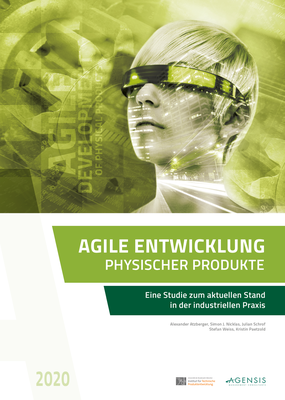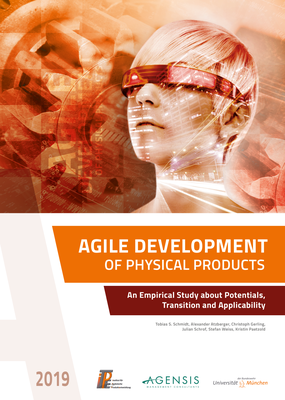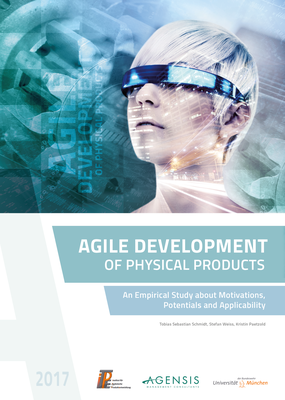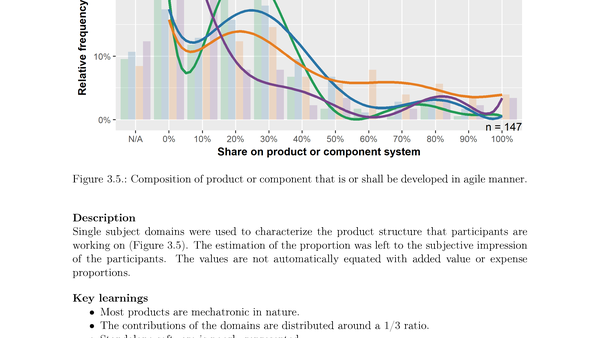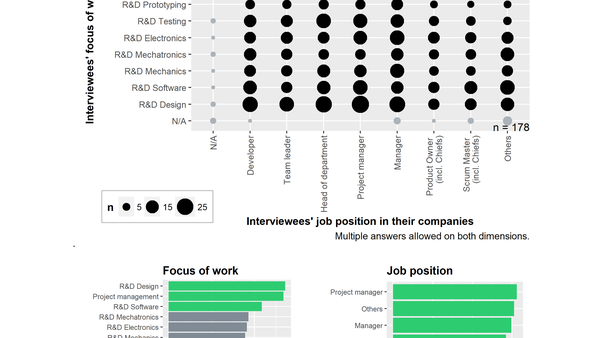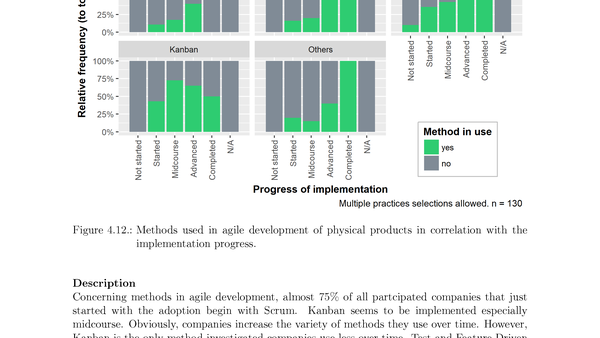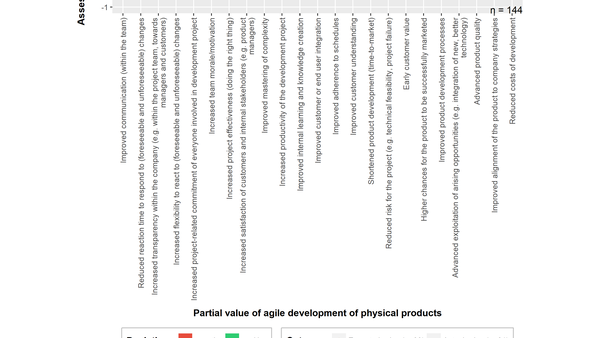2020: Agile Entwicklung physischer Produkte:
Eine empirische Studie zum aktuellen Stand in der industriellen Praxis
Alexander Atzberger, Simon J. Nicklas, Julian Schrof, Stefan Weiss, Kristin Paetzold
Abstract
Agile approaches in the development of mechatronic products are progressing successively, even beyond their boundaries. Based on these results, we were again able to set new focal points in this year's study: First, we once again examined the understanding of agile development in more detail in order to understand what image users have of agile development. Then we looked at which process models are used and how they are applied. In the third part, we looked specifically at the challenges that arise in the application of these process models, and provide information on possible solutions. Finally, we take up the topic of scaling in physical product development in order to understand which frameworks are used here and which characteristics the term scaling has in the context of mechatronic development.
Take a look!
ISBN
978-3-943207-43-9
DOI
https://doi.org/10.18726/2020_5
Download as eBook
2019: Agile development of physical products:
An empirical study about potentials, transition and applicability
Tobias S. Schmidt, Alexander Atzberger, Christoph Gerling, Julian Schrof, Stefan Weiss, Kristin Paetzold
Abstract
The topic of 'agile development' in mechatronics is attracting more and more attention in the industry. For this reason, in the second study we focused more closely on the topics of potentials (real improvements through agile hardware development), the transition and the applicability of the concept in hardware development. The question of the progress of the hype is shown on the one hand, and the different perspectives on the topic of agile on the other.
Take a look!
ISBN
978-3-943207-38-5
Download as eBook
2017/2018: Agile development of physical products: An empirical study about motivations, potentials and applicability
Tobias S. Schmidt, Stefan Weiss, Kristin Paetzold
Abstract
More and more companies are facing increasing volatility, uncertainty, complexity and ambiguity (VUCA) in the development of physical products. To counter such environments, they are trying to become more agile. However, there are many myths, misconceptions, and misinterpretations in agile hardware development. This empirical study sheds light on motivations (reasons for implementing agile hardware development), potentials (real improvements through agile hardware development) and applicability of the concept in hardware development. It provides quantitative facts using scientific methods.
ISBN
978-3-943207-28-6
